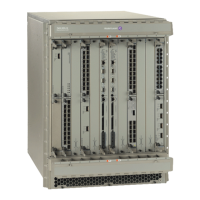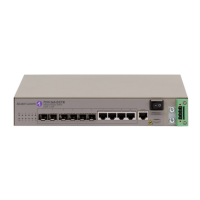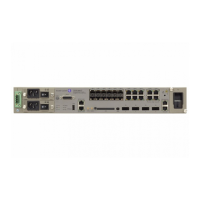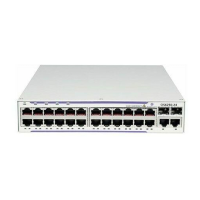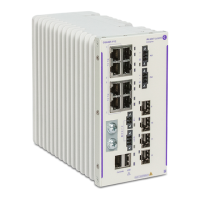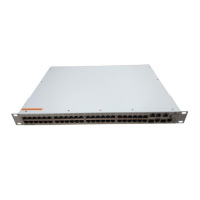Page 54 7450 ESS OS Basic System Configuration Guide
• The operator can enable automatic synchronization of rollback checkpoint files between
the active CPM and inactive CPM. When this automatic synchronization is enabled, a
rollback save will cause the new checkpoint file to be saved to both the active and
standby. The suffixes of the old checkpoint files on both active and standby CPMs are
incremented.
Note: The automatic sync only causes the ONE new checkpoint file to be copied to both
CFs (the other 9 checkpoints are not automatically copied from active to standby but that
can be done manually with admin red rollback-sync).
config>redundancy# [no] rollback-sync
•“config red sync {boot-env|config}” and “admin red sync {boot-env|config}” do not
apply to rollback checkpoint files. These commands do not manually or automatically
sync rollback checkpoint files. The dedicated rollback-sync commands must be used to
sync rollback checkpoint files.
• Rollback files can be deleted using a dedicated rollback checkpoint deletion command.
admin>rollback# delete {latest-rb|<checkpoint-id>}
Deleting a rollback checkpoint causes the suffixes to be adjusted (decremented) for all
checkpoints older that the one that was deleted (to close the “hole” in the list of
checkpoint files and create room to create another checkpoint)
If “config redundancy rollback-sync” is enabled, a rollback delete will also delete the
equivalent checkpoint on the standby CF and shuffle the suffixes on the standby CF.
If an operator manually deletes a rollback checkpoint file (using file delete) then the
suffixes of the checkpoint files are NOT shuffled, nor is the equivalent checkpoint file
deleted from the standby CF. This manual deletion creates a “hole” in the checkpoint
file list until enough new checkpoints have been created to roll the “hole” off the end
of the list.
• As shown in Figure 2, support for rolling back to a previous configuration (a saved
rollback checkpoint) with minimal impact on services. The previous configuration will be
loaded and take operational effect:
admin>rollback# revert [latest-rb|<checkpoint-id>]
